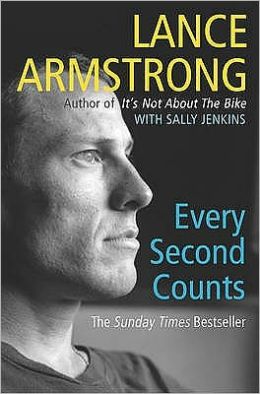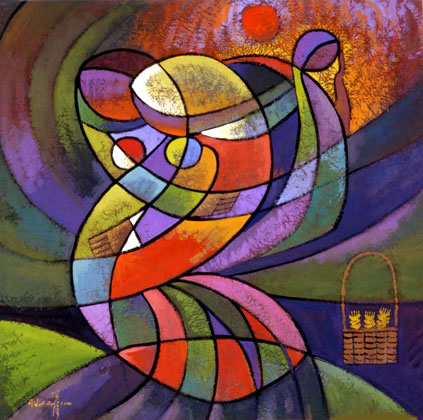 There are so very many ways to get lost. And most of them include some kind of stumbling over love. Wrestling with that confusion seems to be an essential part of the human journey. Even Jesus had to wrestle with what it meant to be loved, and more than once. He had his temptations, in the wilderness and after that, too.
There are so very many ways to get lost. And most of them include some kind of stumbling over love. Wrestling with that confusion seems to be an essential part of the human journey. Even Jesus had to wrestle with what it meant to be loved, and more than once. He had his temptations, in the wilderness and after that, too.
There’s murkiness inside the human heart, as well as in the world. Lent is heartful work, a journey into this murk. This year Lent begins right after Valentine’s Day, moving us on from love’s sweets and blooms to love’s temptations. These begin for Jesus as they do for us, with a temptation to manipulate the ones who love us into being the ones who serve us.
Two who’ve lately succumbed to this temptation are Lance Armstrong, world class cyclist-on-drugs, and Ronaiah Tuiasosopo, whose secret online life as a gorgeous young woman entrapped Notre Dame footballer Manti Te’o, humiliated him and broke his heart as well.
 Armstrong longed for the adoration and the affirmation we all gave him, the power of being the world’s best cyclist. To achieve that, Armstrong said yes to the Tempter’s suggestion: drugs. Drugs became the hidden secret in his heart, the prize that lived in the sacred space within him. And the rest of us, who paid him and exalted him, became the folks he was manipulating, not people he loved in return. Armstrong got lost – in lies, drugs, anger, fear, vanity, money.
Armstrong longed for the adoration and the affirmation we all gave him, the power of being the world’s best cyclist. To achieve that, Armstrong said yes to the Tempter’s suggestion: drugs. Drugs became the hidden secret in his heart, the prize that lived in the sacred space within him. And the rest of us, who paid him and exalted him, became the folks he was manipulating, not people he loved in return. Armstrong got lost – in lies, drugs, anger, fear, vanity, money.
Tuiasosopo longed to be loved as a woman, and was ashamed of that, suffering from memories of sexual abuse, struggling with his evangelical faith, and fearing to lose the good opinion of his pastor father, whom he adored. He succumbed to the Tempter’s suggestion: secrets and lies. He got lost in these, and in anger, fear, vanity. The secrecy was like a narcotic: no one has to know, you can have it all. His secret became the thing he prized, the thing he put in the sacred space within him. Tuiasosopo became dishonest with everyone who loved him.
Jesus heard those tempting voices, urging him to use his Belovedness to have his heart’s desires. Take the power, said the Tempter, to manipulate the world as the most Beloved in it, or to do the good you know needs to be done all by yourself, much as Armstrong used his wealth to fund cancer research, or even Go solo from God and the people into whose belovedness he had been born. Somehow, Jesus managed not to fall for these tempters. But it wasn’t easy for him to say no, and it took him quite a while.
Incredibly, he chose an open relationship full of criticisms, challenges, denunciations and disappointments, a relationship with God and all of us, over the perfectionist fantasies that were part of him, as they are part of us.
His temptations continued, and so do ours. Lent holds the stories of them, stories about love’s unclear choices, about getting lost.
Armstrong and Tuiasosopo raise questions for us all, about American culture and about Christian moral teaching. Armstrong, in his choices, holds up our adulation for winning as the supreme thing. Why is it that we adore winners, but pay little attention to runners up? Why do we idolize the lone athlete, even in sports that are team-based? Individualism is a part of each of Jesus’ temptations, and is the part he resisted. Our culture promotes individualism and winning far more than fairness, or respect for opponents, whom we often describe as enemies. Losers, who are open to public derision, get fired, sold, and traded.
Ronaiah Tuiasosopo raises questions for the church. Hasn’t the church altered the message of Belovedness, from a sacrament open to everyone as a free gift, to a preliminary equality, lasting only till the real Belovedness of marriage? Many churches claim marriage is only for heterosexuals, and some churches claim marriage is more loved by God when heterosexuals enter their marriage as virgins. Haven’t the churches, in doing this, changed the Free Gift into a competitive prize?
 Haven’t most churches taught that homosexuality is sinful? Haven’t churches taught that sex outside of marriage is defiling? And therefore that Belovedness is not an Embracing, but a Sorting, into sinners and the virtuous, whom Jesus loves more? Hasn’t this been taught by churches in place of the stories of Jesus choosing the company of prostitutes, Jesus standing with an adulterous woman against her stoners, Jesus giving the first cup of eternal life to a woman who had had five husbands and was now living with a man who was not her husband?
Haven’t most churches taught that homosexuality is sinful? Haven’t churches taught that sex outside of marriage is defiling? And therefore that Belovedness is not an Embracing, but a Sorting, into sinners and the virtuous, whom Jesus loves more? Hasn’t this been taught by churches in place of the stories of Jesus choosing the company of prostitutes, Jesus standing with an adulterous woman against her stoners, Jesus giving the first cup of eternal life to a woman who had had five husbands and was now living with a man who was not her husband?
Haven’t churches promoted a lifestyle of limited options for the heart, the head, and the home, to such a degree that a harvest of human misery is now being revealed by a world that shuns the pews in increasing number, finding the hypocrisy about marriage, sex, and sacredness so rife that churches are no longer seen as good places to be?
This week the Boy Scouts have been a big news item, not for their good deeds, but for their rejection of homosexuals. Looming up behind them are the churches who sponsor BSA troops, churches opposed to acceptance of homosexuals; and protesting their opposition are Eagle Scouts and den mothers and troop leaders who are gay or lesbian.
With devotion’s visage and pious action we do sugar o’er the devil himself.
William Shakespeare, Hamlet, Act III, Scene 1.
It’s worth some thought, on the day after Ash Wednesday, when we celebrate the gift of love at the door of Lent.
If God exists, he isn’t just churches and mathematics. . . .
He’s every one of us, potentially . . .
And if this is true, isn’t it something very important?
-Mary Oliver, in Evidence
________________________________________
Illustrations:
1. The Marriage of Heaven and Hell, by Keith Haring, 1958-1990, New York
Art in the Christian Tradition, Vanderbilt Divinity School Library
2. Lance Armstrong, book cover, 2003.
3. Arnolfini Wedding, Detail, 1434, by Jan van Eyck, National Gallery, Great Britain
Art in the Christian Tradition, Vanderbilt Divinity School Library
4. Ruth and Naomi, by He Qi, 2001, Nanjing
Art in the Christian Tradition, Vanderbilt Divinity School Library











